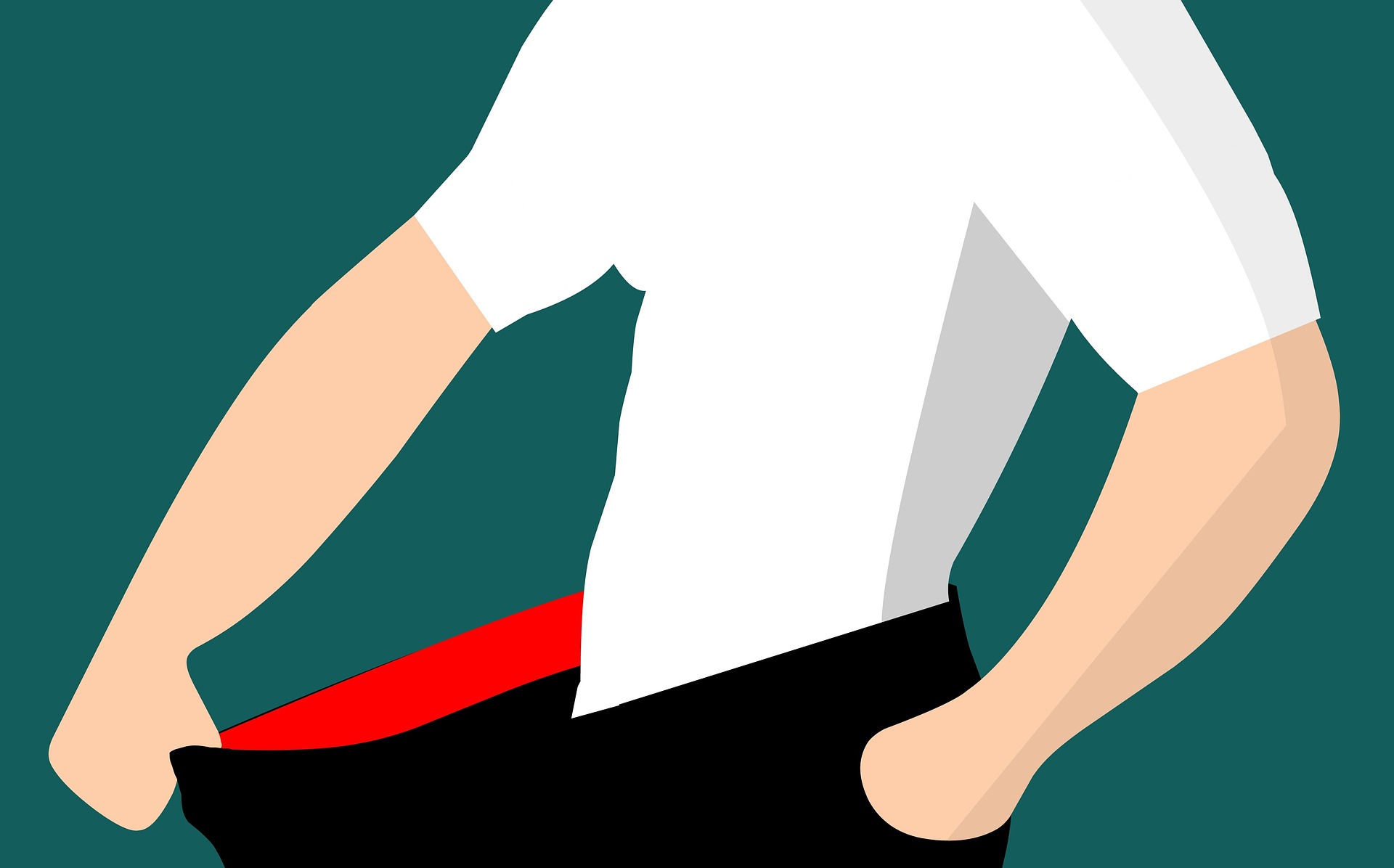
"Set Realistic Weight Loss Goals for One Month"
It's important to set realistic weight loss goals for one month because trying to lose too much weight in a short period of time can be unhealthy and unsustainable. A safe and realistic goal for weight loss is 1-2 pounds per week, or 4-8 pounds in one month. This may not seem like a lot, but small, consistent changes can add up to significant weight loss over time.
To set realistic weight loss goals, consider factors such as your current weight, body composition, and lifestyle. It's also important to consider your personal preferences and what you are willing and able to commit to in terms of diet and exercise.
Here are some pointers for establishing sensible weight loss objectives:
Consult with a healthcare professional, such as a doctor or registered dietitian, to determine a healthy weight range for your age, height, and other factors.
Determine your starting point by calculating your body mass index (BMI) and measuring your waist circumference.
Make sure your goals are SMART—specific, measurable, achievable, relevant, and time-bound. For example, "I will lose 8 pounds in one month by eating at least 5 servings of vegetables per day and participating in at least 150 minutes of moderate intensity physical activity per week."
Be adaptable and willing to change your objectives as necessary. It's okay if you don't meet your target weight loss in one month – the important thing is to make progress and establish healthy habits that can be maintained over the long term.
"Create a Balanced Meal Plan"

The following advice will help you make a balanced food plan:
Foods from all food groups, such as fruits, vegetables, whole grains, lean meats, and healthy fats, should be included in your diet.
Focus on whole, unprocessed foods as much as possible. Compared to processed foods, these are typically lower in calories and higher in nutrients.
Pay attention to portion sizes. Use measuring cups or a food scale to ensure you are not overeating.
Include five servings or more of fruits and vegetables each day.. These foods are high in fiber and nutrients, and can help you feel full and satisfied.
Reduce your intake of sodium, saturated and trans fats, and added sugars. These nutrients may be a factor in weight gain and other medical conditions.
Drink plenty of water throughout the day. Water can help keep you hydrated and feeling full.
Plan ahead and prepare healthy meals and snacks in advance to make it easier to stick to your meal plan.
Remember, everyone's nutritional needs are different, so it's important to consult with a healthcare professional, such as a registered dietitian, to determine the right balance of nutrients for your individual needs.
"Incorporate Physical Activity into Your Daily Routine"

Here are some ideas for working exercise into your everyday schedule:
Find things that suit your schedule and that you enjoy doing. This could include walking, running, cycling, dancing, swimming, or participating in a team sport.
Aim for at least 150 minutes of moderate intensity physical activity or 75 minutes of vigorous intensity physical activity per week. This can be broken up into shorter sessions throughout the week, such as 30 minutes of activity 5 days per week.
Incorporate strength training exercises at least 2 days per week to build muscle and increase metabolism.
To keep things fresh and avoid monotony, vary your routine.
Consider working with a personal trainer or exercise coach to develop a safe and effective fitness plan.
Don't forget to warm up before physical activity and cool down afterwards to prevent injury.
Gradually increase the intensity and duration of your physical activity as your fitness improves.
Do not overdo it; rather, pay attention to your body. If you have any health concerns, it's important to consult with a healthcare professional before starting a new physical activity routine.
"Find Support and Hold Yourself Accountable"
Finding support and holding yourself accountable can be important for helping you stay on track with your weight loss goals. When you have people to support you and hold you accountable, you are more likely to stay motivated and committed to your plan.
Here are some ways to find support and hold yourself accountable:
Find a support group, such as a weight loss program or online community. Being around others who are also trying to lose weight can provide motivation and accountability.
Ask your loved ones for their support by sharing your objectives with them. Having a strong support system can make a big difference in your success.
Consider working with a coach or mentor who can provide guidance and accountability.
Keep a food and exercise journal to track your progress and identify areas where you may need to make changes.
Set manageable objectives for yourself, and treat yourself when you succeed. This might support your motivation and keep you on course.
Don't be too hard on yourself if you have a setback. Instead, take use of the chance to learn and modify.
Remember, it's important to be kind to yourself and not beat yourself up for mistakes. The important thing is to stay focused and keep working towards your goals.
"Consider Trying Weight Loss Supplements or Medications (Under Medical Supervision)"

Here are some things to consider when thinking about using weight loss supplements or medications:
Consult with a healthcare professional, such as a doctor or registered dietitian, before starting any weight loss supplement or medication. They can help you understand the potential risks and benefits and determine if it is appropriate for you.
Keep in mind that the safety and effectiveness of many weight loss supplements and medications have not been well-studied, and their long-term effects are unknown.
Be wary of products that make exaggerated or unrealistic claims about weight loss. A product is most likely scam if it seems too wonderful to be true.
Understand that weight loss supplements and medications are not a quick fix and should be used in conjunction with a healthy diet and regular physical activity.
Be aware of potential side effects and be sure to report any adverse reactions to your healthcare professional.
Remember, the safest and most effective way to lose weight is through a combination of diet and exercise. Weight loss supplements and medications should only be used under the supervision of a healthcare professional and as part of a comprehensive weight loss plan.
"Stay Hydrated and Get Adequate Sleep"
Staying hydrated and getting adequate sleep are important for overall health and can also support weight loss. Here's why:
Hydration: Drinking enough water is essential for maintaining a healthy metabolism, regulating body temperature, and supporting proper organ function. Additionally, it can make you feel happy and full, which can support weight loss. Aim for eight cups (64 ounces) of water or more each day.
Sleep: Getting enough sleep is important for overall health and can also affect weight. Studies have shown that people who get insufficient sleep tend to have a higher body mass index (BMI) and are more likely to be obese. Sleep for 7-9 hours every night.
Here are some tips for staying hydrated and getting adequate sleep:
Carry a bottle of water with you at all times, and drink from it frequently.
Choose water over sugary drinks and limit caffeine intake, as caffeine can dehydrate the body.
Eat hydrating foods, such as fruits and vegetables, which can help contribute to your daily water intake.
Establish a regular sleep routine and try to go to bed and wake up at the same time every day.
Create a relaxing bedtime routine, such as reading or taking a warm bath, to help you wind down and prepare for sleep.
Avoid screens (e.g. phone, computer, TV) for at least an hour before bed, as the blue light emitted by these devices can disrupt sleep.
Consider trying relaxation techniques, such as deep breathing or meditation, to help you fall asleep.
Use a food and exercise journal to track your intake and activity. This can help you identify patterns and make changes as needed.
Weigh yourself regularly, but be aware that weight can fluctuate for a variety of reasons (e.g. water intake, hormone fluctuations). Instead of focusing on the number on the scale, pay attention to how your clothes fit and how you feel overall.
Take progress photos to see changes in your body composition.
Consider tracking other markers of progress, such as measurements (e.g. waist circumference), strength (e.g. how much you can lift), and endurance (e.g. how long you can hold a plank).
If you are not seeing progress or are struggling to stick to your plan, don't be afraid to make adjustments. This could include changing your meal plan, increasing physical activity, or seeking additional support.
Remember that weight loss is a journey and it's important to be patient and consistent. It's okay if you don't see immediate results – the important thing is to keep working towards your goals and making progress.
Remember, staying hydrated and getting adequate sleep are important for overall health and can also support weight loss efforts.
"Track Your Progress and Adjust Your Plan as Needed"

Here are some tips for tracking your progress and adjusting your plan as needed:
Tracking your progress and adjusting your plan as needed can help you stay on track and achieve your weight loss goals. Keep in mind to be consistent and patient, and don't be afraid to change as necessary.




0 Comments